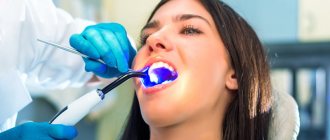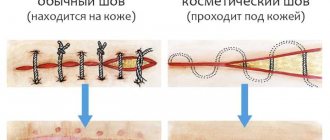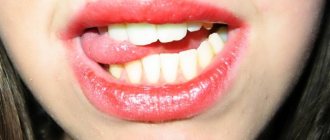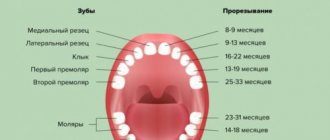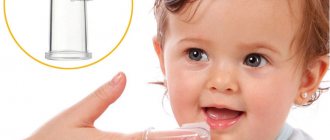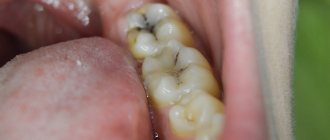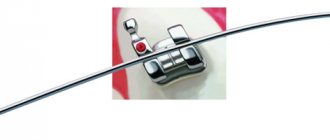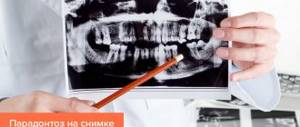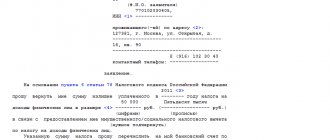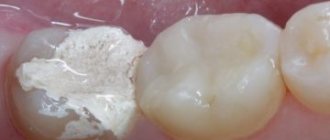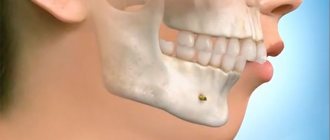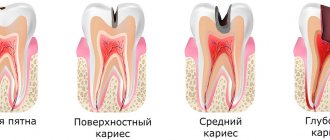From this article you will learn:
- the best remedy for teething in children,
- Will homeopathy be effective?
- When can you use Panadol or Nurofen?
To relieve symptoms during the eruption of the first teeth, not only special pain-relieving gels for gums, but also systemic drugs can be used. The latter also include a group of homeopathic medications, among which the most popular are oral medications – “Dantinorm Baby” and “Dentokind”, as well as Viburkol suppositories for rectal use.
The big advantage of such drugs is that they not only soothe the gums during teething, but also help cope with the baby’s nervousness and help restore healthy sleep. In addition to homeopathic remedies, more serious drugs can be used, such as Panadol and Nurofen (based on paracetamol and ibuprofen, respectively). They are used from 3 months, and the optimal indication for their use is the presence of a child with fever or severe pain due to teething.
What does the eruption of baby teeth look like?
Thus, depending on the severity of the symptoms, you can - 1) either use an anesthetic gel for local use in the oral cavity (they are also available only with herbal components), 2) use one of the systemic drugs, 3) or combine an anesthetic gel with the drug for oral or rectal use.
As you will see below, the latter option makes sense, because... Systemic homeopathic preparations, although they do not have a pronounced analgesic or anti-inflammatory effect, nevertheless, they can reduce nervousness and normalize the child’s sleep (due to the inclusion of herbal components with a sedative effect). In addition, one of these drugs can, among other things, reduce salivation in an infant, preventing choking on saliva and drooling from the mouth.
What else can you give your baby to expose his condition?
As mentioned above, the period of growth of the first milk teeth is associated with a certain stress for the child and is accompanied by some changes in his body. Obviously, there is a violation of the integrity of the gingival tissue, and this process, in turn, entails symptoms such as pain and burning in the area of eruption.
Erupting the first teeth is a big challenge for a child.
And then the following happens: in order to minimize the risk of infection, the body begins to stimulate the production of saliva and interferon, which protects the child’s body and repels the attack of pathogenic bacteria1. This process is often accompanied by an increase in body temperature. Due to excessive salivation, slight irritation may appear on the chin and neck, and some disruptions in the functioning of the digestive system may occur - you should not be afraid of this, since all the child’s internal systems will normalize on their own as soon as teeth appear.
Experts do not recommend lowering the temperature during this period, but parents should still stock up on antipyretics in case of emergency. Currently, pharmacy shelves offer a wide range of drugs that help alleviate the baby’s condition during teething.
Currently, there is simply no complete analogue of the drug “Viburkol” with the same composition. However, there are plenty of products in pharmacies that doctors allow to be used to alleviate the condition of children as their baby teeth grow. Below are the most popular options:
- based on paracetamol: “Cefekon” and “Efferalgan” - help lower the temperature and reduce pain,
- based on ibuprofen: “Nurofen” and “Ibufen” - also help reduce temperature and block pain,
- gels with anesthetic: “Dentinox” and “Kamistad” - for application to the gums to reduce pain.
If the baby's temperature has risen sharply, not rectal suppositories, but antipyretic drugs in the form of syrups will be more effective. As for local pain relievers, due to the immediate action of lidocoin, they give the desired effect faster than others. If the symptoms are too severe and the temperature exceeds the permissible norms, the child should be immediately shown to a doctor. And remember: any medications, even those based on natural ingredients, should be given to the baby only with the permission of a specialist.
- Elizarova, V.M. Trend in changes in the timing of the eruption of primary teeth in the modern generation of children, 2002.
Viburkol suppositories - reviews for teething
Viburkol suppositories are a homeopathic preparation that consists of extracts of medicinal plants. This drug is available in the form of suppositories (which means rectal use), and is therefore recommended for very young children - to relieve nervousness and pain during teething. The drug is produced in Germany. The cost of the drug Virburkol will be from 450 rubles (the package contains 12 suppositories).
Viburkol suppositories: photo of packaging
Composition of the drug Viburkol –
- Chamomilla recutita (chamomile),
- Atropa bella-donna (common belladonna),
- Solanum dulcamara (bittersweet nightshade),
- Plantago major (large plantain),
- Pulsatilla pratensis (meadow lumbago),
- Calcium carbonicum Hahnemanni (carbonic lime).
Instructions for use of Viburkol suppositories - maximum dose for children under 6 months - 1 suppository 2 times a day. For children over 6 months with acute symptoms of teething - 1 suppository 4-6 times a day, and after improvement - use 1 suppository 2-3 times a day (the drug is administered rectally). It is optimal to use in children no older than 2 years.
Reviews of Viburkol suppositories for teething show that the drug has a moderate anti-inflammatory and analgesic effect. Some of the components of the drug have an antipyretic and mild sedative effect, which will calm the child and normalize sleep. The inclusion of belladonna (belladonna) in the composition helps reduce salivation in the child, preventing him from choking on saliva and drooling from the mouth.
Other medicines for teething -
As we said above, homeopathic medicines can only relieve moderately severe symptoms, and they do not have a pronounced analgesic, antipyretic or anti-inflammatory effect.
Therefore, in some cases, special anesthetic gels (for local use in the oral cavity) can be used in parallel. The gel may contain either only herbal components, or their combination with the mild anesthetic Lidocaine. But there are situations when all this is not enough. For example, your child may have a fever (24stoma.ru). In general, elevated temperature during teething occurs very rarely, and most often its cause is either a concomitant acute respiratory infection or herpetic stomatitis of the oral mucosa. Also, in some cases, the child may experience significant pain and inflammation of the gums. For these cases, the following drugs are available.
1) Children's Panadol for teething -
Children's Panadol contains paracetamol as an active component; accordingly, this drug will have a pronounced antipyretic and analgesic effect. There are several forms of release. Panadol suppositories with a dosage of 125 mg can be used from 1 year, and with a dosage of 250 mg - in children from 3 years. However, the most convenient form of release will be “Panadol Baby” (in the form of a suspension), which can be used in children from 3 months to 12 years.
Children's Panadol in suspension form –
List of used literature
1. Kramarev S.A., Palatnaya L.A., Shamugiya B.K. Alternative methods of treatment and prevention of influenza and ARVI in children // Methodological recommendations of the Ministry of Health, 2006.
2. Yaroshchuk L.B. Possibilities of antihomotoxic therapy in the prevention and treatment of acute respiratory viral infections and influenza // Family medicine. - 2004. - No. 4. - P. 28–32.
3. Klimenko L.V. The use of antihomotoxic drugs to correct immuno-energy deficiency in the treatment of children with frequent and long-term acute respiratory viral infections // Biological therapy. - 2009. - No. 1. - P. 46–48.
4. Wemmer U. Recurrent upper respiratory tract infections in childhood // Biological therapy. - 2001. - No. 1. - P. 37–40.
5. Pharmaceutical care. Course of lectures // Edited by prof. Zupantsa I.A. - Kh.: Farmitek, 2006. - P. 105.
6. Instructions for medical treatment of VIBURCOL.
7. Kovtun O.V. First aid kit for newborns and infants // Biological therapy. - 2010. - No. 2. - P. 27.
8. Gottwald R., Weiser M. Antihomotoxic therapy of anxiety states with or without fever in children with Viburcol // Biological therapy. - 2000. - No. 4. - P.12–16.
9. Müller-Krampe B., Gottwald R., Weiser M. Comparison of the effectiveness and tolerability of Viburcol and paracetamol in the symptomatic treatment of acute febrile conditions in children // Biological Therapy. - 2002. - No. 4. - P. 3–9.
What's included
The product in question contains only natural ingredients, and therefore has virtually no contraindications. Among the active ingredients of the drug:
- belladonna extract,
- pharmaceutical chamomile,
- bittersweet nightshade extract,
- plantain extract,
- calcium carbonate,
- meadow lumbago juice.
Chamomile, which is part of the drug, helps relieve inflammation.
Chamomile, which is part of the drug, helps relieve inflammation and reduce pain. Bittersweet nightshade fights infections in the body that cause fever. Belladonna also helps relieve inflammatory processes, but meadow lumbago is responsible for normalizing the functioning of the digestive and nervous systems. Plantain extract helps stop bleeding and reduce swelling.
Dentokind - reviews for teething
Dentokind is a complex homeopathic medicine, which is available in the form of lozenges (made in Germany). Its maximum daily dose is 12 tablets. The drug can be effective for moderate inflammation, a slight increase in temperature, and it also has a moderate sedative effect on the nervous system, helping to relieve anxiety. Recommended by the manufacturer for use from 0 to 6 years.
Composition of active ingredients (per 1 tablet) –
- Belladonna (belladonna),
- Chamomilla recutita (chamomile),
- Ferrum phosphoricum,
- Hepar sulfuris,
- Pulsatilla pratensis (meadow arrow).
Belladonna is a plant containing the alkaloid atropine, to which it owes its effect. In children, against the background of teething, salivation sharply increases, and the biggest advantage of this component is that it reduces the production of saliva in the child (allowing one to avoid choking on saliva and drooling from the mouth). Pharmaceutical chamomile has a moderate anti-inflammatory, analgesic and sedative effect.
The Ferrum phosphoricum component has a moderate anti-inflammatory effect and can also be effective with a slight increase in body temperature. The Hepar sulfuris component, due to its sulfur content, has a bactericidal/anti-inflammatory effect (as you remember, syphilis was treated in ancient times with mercury or sulfur). Meadow arrow – has a weak bactericidal, as well as a moderate analgesic and sedative effect.
Dentokind reviews for teething indicate that this drug copes with symptoms a little better than the previous one. As we said above, its big advantage is to reduce salivation and drooling in the child, as well as reduce nervousness. The drug can be effective for minor inflammation in the area of the erupting tooth and low temperature (about 37.5 degrees). However, it makes no sense to use Dentokind for more serious temperatures, as well as severe inflammation or pain.
